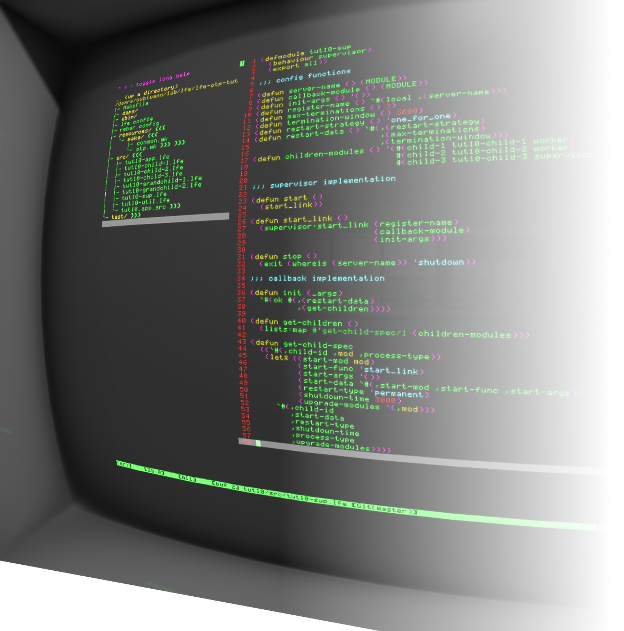LFE Friday - timer:tc/3
 This week's LFE Friday was translated with permission from the
Erlang Thursday
series by Steven Proctor.
This week's translator: Robert Virding.
This week's LFE Friday was translated with permission from the
Erlang Thursday
series by Steven Proctor.
This week's translator: Robert Virding.
Read more
Robert Virding | January 10, 2015 | Tags :
lfetool 1.5.0 Preview: Overriding Version Pinning
Looking for volunteers to test new lfetool feature
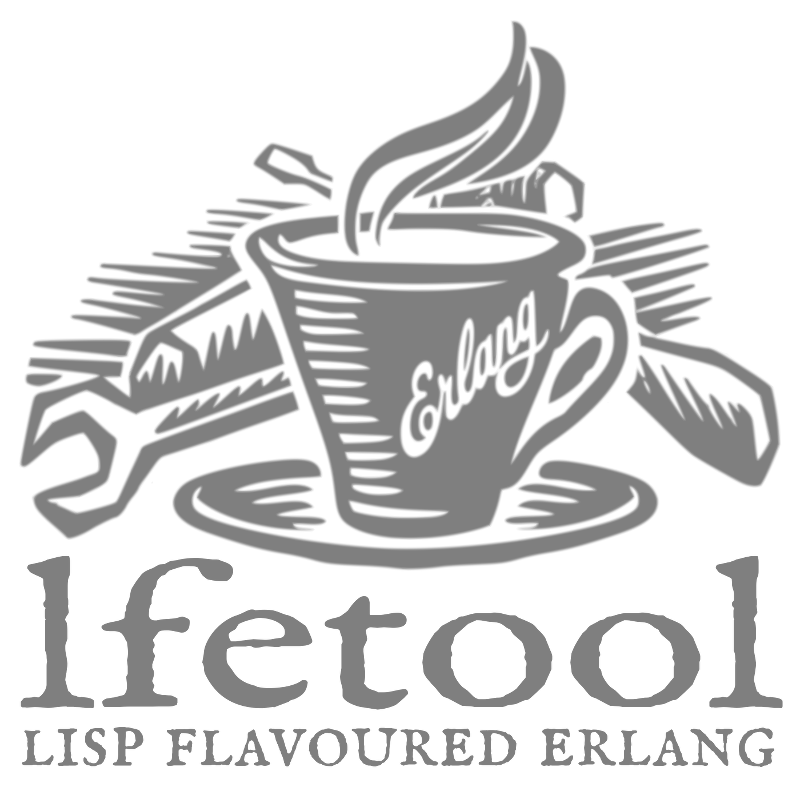 The next version of lfetool will provide users with the flexibility
to override dependencies with pinned versions in their project's
The next version of lfetool will provide users with the flexibility
to override dependencies with pinned versions in their project's
rebar.config file. This post is aimed at folks on the LFE mail list who
may be interested in using this right away or helping to do QA. Of course,
if others find themselves compelled to use and test the pre-release code,
they are quite welcome (with open arms, even)!
Read more
Duncan McGreggor | January 9, 2015 | Tags :
LFE Friday - lists:any/2
 This week's LFE Friday was translated with permission from the
Erlang Thursday
series by Steven Proctor.
This week's translator: Robert Virding.
This week's LFE Friday was translated with permission from the
Erlang Thursday
series by Steven Proctor.
This week's translator: Robert Virding.
Read more
Robert Virding | January 4, 2015 | Tags :
Coming Soon: LFE Friday!
With Steven Proctor's blessing, LFE will be re-publishing Erlang Thursdays...
 By all accounts,
Erlang Thursday
is a smash hit! We love the work that
Steven Proctor is doing for the Erlang community
… so much so, that we've asked him if we can translate his weekly posts into
LFE for "LFE Friday". We were quite delighted when he said "Yes!" :-)
By all accounts,
Erlang Thursday
is a smash hit! We love the work that
Steven Proctor is doing for the Erlang community
… so much so, that we've asked him if we can translate his weekly posts into
LFE for "LFE Friday". We were quite delighted when he said "Yes!" :-)
Read more
Duncan McGreggor | January 3, 2015 | Tags :
Scientific Computing on the Erlang VM
Polynomial Curve Fitting with LFE
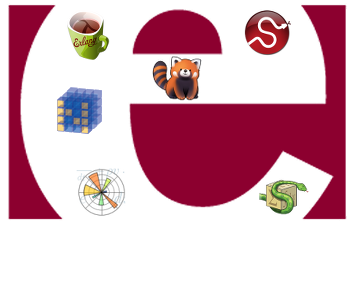 This tutorial brings in the New Year by introducing the Erlang/LFE
scientific computing library lsci
– a ports wrapper of NumPy and SciPy (among others) for the Erlang ecosystem.
The topic of the tutorial is polynomial curve-fitting for a given data set.
Additionally, this post further demonstrates py
usage, the
previously discussed
Erlang/LFE library for running Python code from the Erlang VM.
This tutorial brings in the New Year by introducing the Erlang/LFE
scientific computing library lsci
– a ports wrapper of NumPy and SciPy (among others) for the Erlang ecosystem.
The topic of the tutorial is polynomial curve-fitting for a given data set.
Additionally, this post further demonstrates py
usage, the
previously discussed
Erlang/LFE library for running Python code from the Erlang VM.
Read more
Duncan McGreggor | January 1, 2015 | Tags :
Easy Python from LFE/Erlang
The quickest way to use Python from LFE/Erlang
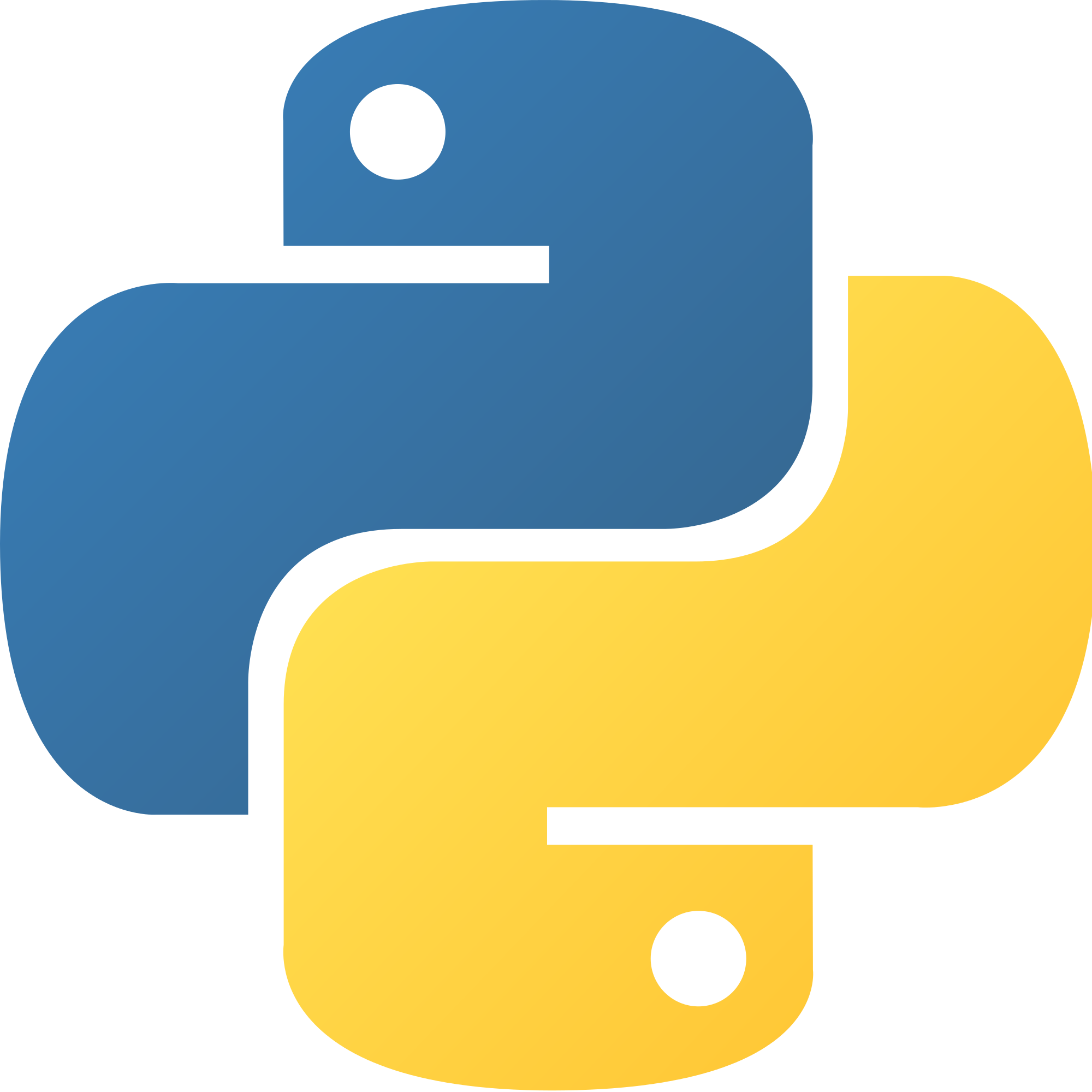 Recently there has been a great deal of interest in running Python from
Erlang/LFE. In particular,
these
two
posts have gotten a lot of attention. This post introduces a new library for
LFE and Erlang that builds upon the work demonstrated in those posts, and
furthermore, points towards a future of distributed Python … a future that is
just a few days away.
Recently there has been a great deal of interest in running Python from
Erlang/LFE. In particular,
these
two
posts have gotten a lot of attention. This post introduces a new library for
LFE and Erlang that builds upon the work demonstrated in those posts, and
furthermore, points towards a future of distributed Python … a future that is
just a few days away.
Read more
Duncan McGreggor | December 27, 2014 | Tags :
Happy Holidays from LFE
 To all you Erlangers, Lispers, FP'ers, Hackers, and Open-Sorcerers – we wish
you the very best of holidays, a wonderful finishing of the year, and the
happiest of new years!
To all you Erlangers, Lispers, FP'ers, Hackers, and Open-Sorcerers – we wish
you the very best of holidays, a wonderful finishing of the year, and the
happiest of new years!
Read more
LFE Maintainers | December 25, 2014 | Tags :
Post Sprint Report: LFE Experience
A first-encounter with LFE from an Erlang appreciator with a Lisp background.
 My
team and I have just finished our first major sprint using LFE and I thought
this would be a good time to report on our experience. Our stack is built around
YAWS and we are using MySQL as the database. We're not
using any templating language, but instead relying on an API-based architecture
with all front-end interactions in JavaScript + HTML.
My
team and I have just finished our first major sprint using LFE and I thought
this would be a good time to report on our experience. Our stack is built around
YAWS and we are using MySQL as the database. We're not
using any templating language, but instead relying on an API-based architecture
with all front-end interactions in JavaScript + HTML.
Read more
Anurag Mendhekar | December 17, 2014 | Tags :
BYTE, August 1979: The LISP Issue
An exploration of the Ancient LISP code on the cover of BYTE, August 1972
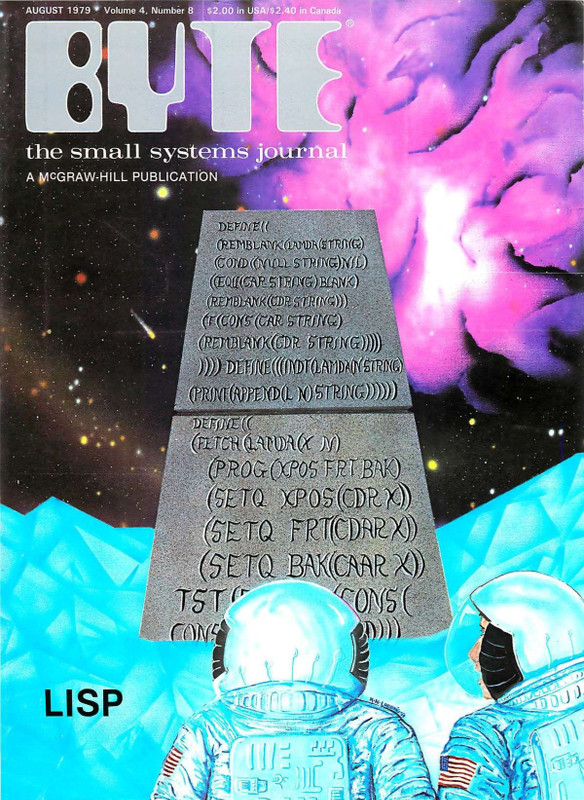 The image from this post
is from
a tweet
by Paige Bailey (@DynamicWebPaige).
It's from the August 1979 issue of Byte which was focused on Lisp.
The table of contents is
here and includes such articles as:
The image from this post
is from
a tweet
by Paige Bailey (@DynamicWebPaige).
It's from the August 1979 issue of Byte which was focused on Lisp.
The table of contents is
here and includes such articles as:
Read more
Duncan McGreggor | December 15, 2014 | Tags :
lutil 0.5.0: Composition, Predicates and Core lutil
New features in lutil 0.4.1
 With the
release of lutil 0.5.0,
there are new "compose" functions accompanying the
previously-merged
thrushing macros as well as a new convenience include file which contains all
of lutil's predicate functions defined for easy use in the REPL or in modules.
Additionally there is a new, experimental include file that is beginning to
define functions and macros considered "core" to the LFE experience but which
aren't yet (and may never be) included in LFE-proper. Some of these may wrap
Erlang functions with more options, others may provide new syntax, etc. See
below for usage examples.
With the
release of lutil 0.5.0,
there are new "compose" functions accompanying the
previously-merged
thrushing macros as well as a new convenience include file which contains all
of lutil's predicate functions defined for easy use in the REPL or in modules.
Additionally there is a new, experimental include file that is beginning to
define functions and macros considered "core" to the LFE experience but which
aren't yet (and may never be) included in LFE-proper. Some of these may wrap
Erlang functions with more options, others may provide new syntax, etc. See
below for usage examples.
Read more
Duncan McGreggor | December 14, 2014 | Tags :
